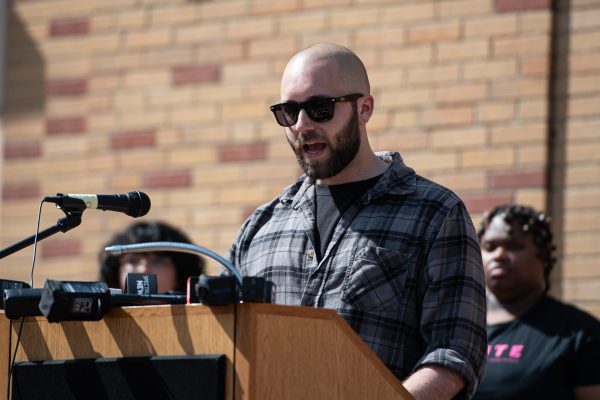Academic freedom main issue for faculty
September 6, 2007
As feedback pours in about the proposed revisions to the strategic plan, academic freedom remains a top concern among faculty.
President Lester Lefton had proposed revisions to the university’s strategic plan toward the end of spring semester and asked for faculty feedback. The current strategic plan describes what makes the university unique and includes a list of goals. It was last approved by the Board of Trustees in May 2004.
Cheryl Casper, chair of faculty senate and the strategic planning committee, had requested that faculty submit feedback on Lefton’s proposed revisions to her by tomorrow. The feedback will be reviewed by the committee and changes will be submitted to Faculty Senate for approval, tentatively scheduled for mid-October.
Academic Freedom
Casper said the most common comment from faculty and administrators was that a reference to academic freedom in the university’s mission statement had been removed and only listed in the first sentence of the core values section.
Casper said academic freedom is one of the things the committee will look at because it’s so important to university life.
“Academic freedom is equal to freedom of speech in the academic world,” she said.
Lefton said, despite concern among faculty members, he is not trying to diminish academic freedom at Kent State.
“That couldn’t be further from the truth,” he said. “I’m just putting it where it belongs.”
Lefton said academic freedom belongs in the core values section because it is something the university believes in. Whereas, he said the purpose of Kent State’s mission statement is to describe “what we are here to do,” such as teaching and research.
“If anything, I am one of the strongest believers of academic freedom out there,” he said, citing his constant efforts to protect it against politicians and parents who want to monitor teaching.
The Next Step
Lefton said agreement on the elements of the strategic plan — the mission statement, vision, core values and strategic goals — is the “preamble” to the creation of an academic plan, which Kent State does not yet have. The academic plan will be part of the strategic plan.
“Basically, this is one big strategic plan,” he said. “The academic plan is the major portion.”
Lefton said Kent State needs an academic plan because it will act as a blueprint outlining what will actually be done to fulfill the university’s vision.
He said the academic plan will likely include sections devoted to education, research, community outreach, faculty, students and staff.
For example, Lefton said if improving classroom quality is included in the academic plan, specific tactics will achieve that objective, such as hiring the best faculty and helping them advance while providing opportunities for professional development.
“Strategic planning is always a process,” he said, adding a committee led by Provost Robert Frank will undergo the year-long process of creating an academic plan.
Frank said the academic plan will be a more practical approach and may include a section on retention.
“Every time a student comes here and doesn’t stay to graduate, we’ve lost a university investment,” he said.
Contact academics reporter Kiera Manion-Fischer at [email protected] and administration reporter Jackie Valley at [email protected].























